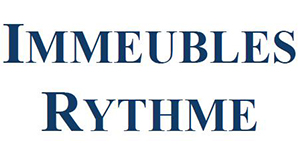
Susanna Esposito – University of Parma
/
Full Professor of Pediatrics at the University of Parma, Director of the Pediatrics Residency Program, Director of the Pediatric Clinic at the Parma University Hospital, and President of the World Association for Infectious Diseases and Immunological Disorders (WAidid).
From 2002 to 2005, she was a university researcher in general and specialist pediatrics, and from 2005, an Associate Professor at the University of Milan, where she directed the High-Intensity Pediatric Care Unit from 2010 to 2016.
From 2016 to 2019, before moving to the University of Parma, she served as Full Professor of Pediatrics, Director of the Pediatric Clinic Complex Unit, Director of the Regional Reference Laboratory for the Diagnosis of Cystic Fibrosis in Umbria, Director of the Postnatal Cytogenetics Laboratory, Director of the Regional Center for Pediatric Diabetes in Umbria, and Director of the Pediatrics Residency Program at the University of Perugia.
She was the Chair of the WHO Committee for the Eradication of Measles and Congenital Rubella from 2012 to 2016. President of the WAidid since 2014, she has held numerous positions in national scientific societies (including the presidency of the Italian Society of Pediatric Infectious Diseases from 2011 to 2015) and international ones (such as member of the Executive Council of the ESPID from 2004 to 2007 and coordinator of the Vaccine Study Group of the ESCMID from 2013 to 2020).
In 2012, she discovered two new Enteroviruses: enterovirus C-117 and enterovirus C-118. From 2012 to 2017, she was a member of the Ethics Committee of the IRCCS Ca’ Granda Foundation, Ospedale Maggiore Policlinico of Milan, and since 2023, she has been a member of the Emilia-Romagna Centro (AVEC) Ethics Committee. From 2016 to 2019, she directed Clinical Trial Units accredited by AIFA for conducting phase 1 clinical studies in pediatrics and has led over 200 pediatric clinical trials as the principal investigator throughout her career.
From 2021 to 2023, she was a member of the Executive Council of the Italian Society of Telemedicine (SIT) Emilia-Romagna Section, and since 2023, she has been part of the national Executive Council. She is the coordinator of the Infectious Diseases and Vaccinations Technical Working Group of the Italian Society of Pediatrics (SIP) and a member of the Executive Council and Scientific Committee of the Italian Society for Antimicrobial Therapy (SITA).
Since 2022, she has been President of the Italian Society of Preventive and Social Pediatrics (SIPPS) Emilia-Romagna Section, and from 2024, she is part of the Executive Council of Clust-ER Health.
She collaborates with various national and international research groups, has won several national and international awards, and serves as Editor for numerous scientific journals.
She is a member of the Club of Top Italian Women Scientists (TIWS) and is part of EWMD (European Women’s Management Development Network) Emilia-Romagna Section.
She is deeply involved in undergraduate and postgraduate teaching activities, having coordinated pediatric teaching in numerous Master’s and Bachelor’s Degree Programs, Residency Programs, Doctoral Programs, Level I and II Master’s programs, and Continuing Education Courses at Italian universities since 2002. She is the delegate of the Department of Medicine and Surgery at the University of Parma for Third Mission activities (since 2021) and for Master’s programs (since 2023), and she has been delegated by the Rector to the Inter-company Research Board (since 2024).
She has been invited to deliver lectures as a visiting professor at various foreign universities and has been part of the faculty for the Master’s Program in Pediatric Infectious Diseases at the University of Oxford from 2006 to 2024, with over 1,640 invited presentations at international scientific society conferences.
Prof. Esposito’s research has focused on vaccines, respiratory tract infections, antinfective therapy and emerging infections. In recent years, she has been focusing on topics such as artificial intelligence, digital therapies, and the impact of climate change on various pediatric diseases.
Her scientific output includes over 750 peer-reviewed publications with an impact factor of >5,000, an h-index of 84 (Scopus) and 107 (Google Scholar).























